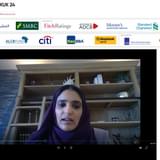|
Background OSN’s main objective was to refinance an existing US$200mn 5-year bilateral facility in 2014 and a wider syndicated deal in 2014, and to finance future capex. The company wanted to adopt a funding structure that was larger, more flexible, unsecured, and one that supported the business from a growth perspective. Despite its rarity in the TMT space, OSN managed to ink a syndicated loan on an unsecured basis and achieved all of its key funding objectives. Transaction Breakdown OSN originally mandated arrangers for a US$200mn 5-year syndicated loan and RCF. The company aimed to limit the syndicated to its key relationship banks to ensure strong uptake, and target lenders that were particularly comfortable with the fluid nature of OSN’s cashflow-driven business. The deal was subscribed to by a range of regional and international lenders, and was upsized to US$400mn on the back of strong demand. The RCF component was increased from 15% to 35% of the facility, and the all-in tenor was reset to 5 years. All-in financing costs were lower than the original debt being refinanced. A key highlight of the deal structure was the share redemption mechanism used in upstreaming the dividend payment, which included the issuance of a separate class of shares (Class B) which were subsequently cancelled through a buy-back (becoming Treasury shares). Overall, the deal helped balance the short and long-term needs of OSN, giving the firm maximum flexibility around repayments and working capital investment. It was one of the few TMT credit deals to come out of the region in recent years. |
CASE STUDY: OSN’s Follow-Up Syndication Oversubscribed
Dubai-based pay-television company OSN closed an oversubscribed, well-structured US$400mn 5-year syndicated loan in a widely successful follow-up to the company’s debut syndication in 2013. The transaction was well-received by the market and helped effectively balance the company’s short and long-term working capital needs.


Bonds & Loans is a trusted provider of news, analysis, and commentary that helps illuminate the most significant issues, events and trends impacting the global emerging credit markets.







